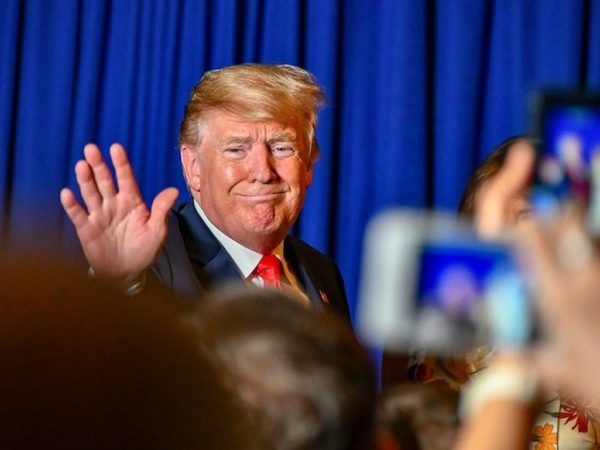Recently, there has been extensive media coverage surrounding the launch of Truth Social, Donald Trump's social network, and its parent company, Trump Media & Technology Group, going public. On the first day of trading, the company's stock price significantly increased, which is unusual given that the company is not yet well-known and has faced financial challenges. According to Michele Costola, a researcher at the Department of Economics, as interviewed by Business Insider, this is a potential example of a meme stock. In such cases, the price trend does not necessarily reflect events related to the company's fundamentals, such as earnings announcements, new provided services, merger and acquistion, but rather the “sentiment” or “mood” surrounding it. In this example, reference is made to former president and likely future presidential candidate Donald Trump.
A meme stock is defined as shares of a company whose price rapidly and unexpectedly increases due to the attention of an online following, driven by communities that gather in forums such as Reddit or other social platforms. These communities have the power to determine whether a company goes viral and can coordinate buy and sell operations, thus influencing share trends.
We asked Michele Costola to guide us into this.
When talking about finance, what do we mean by meme stock?
We can shed further light on this matter by referencing a study conducted in collaboration with Carlo Santagiustina, a researcher in the Department of Management, and Matteo Iacopini, who holds a PhD in Economics from Ca' Foscari and is currently affiliated with Queen Mary University of London. In this study, published in Economics Letters, our aim is to identify common stylized facts of meme stocks.
Essentially, it all started in 2021 with the episode involving the U.S. video game retailer GameStop in a short squeeze, characterized by a rapid increase in stock price primarily due to purchases by hedge funds that were compelled to close their short positions on the stock because they became excessively expensive. These hedge funds based their strategy on fundamental analysis, deeming the prospects of the company's business model dubious and overvalued, in order to profit from an anticipated price decline.
Simultaneously, certain Reddit and Twitter (now X) users coordinated themselves to purchase GameStop shares, counteracting the actions of hedge funds. These actions created a lower bound on the stock price, halting further declines in share prices. Consequently, funds involved in short selling were compelled to buy shares of the same stock to cover their positions, as losses were rapidly escalating. This surge in purchases resulted in a remarkable increase in the stock price. It is noteworthy that the coordination between investors and short sellers emerged as a key driver of this event, irrespective of the analysis of the company's fundamentals. In academic literature, such investors are often defined as “noise traders”.
Much talk has recently been about the meme stock linked to Truth Social's stock market debut. Can you explain this?
Trump's social media platform stocks are considered meme stocks because their value and volatility are mainly influenced by online popularity and expectations about Donald Trump's political career, rather than the platform's fundamentals. Therefore, the performance of these stocks might heavily depend on public perceptions of Trump's current and future success, as well as the impact of ongoing legal proceedings and expectations on his potential re-election to the White House.
So, the mechanism is similar to the GameStop issue?
Stock performance and price dynamics are intrinsically linked to Trump's image and “brand” rather than the company's economic fundamentals. Fundamentals refer to the growth prospects of a company based on its business model and ability to generate profit: one invests in a company if one believes that its business model is destined for success and, therefore, for an increase in value. Conversely, if expectations are negative, investors may choose not to invest, or in the case of hedge funds, engage in short selling. Trump's ability to sway the financial market is based on his electoral base, which views him as a figure to invest in. This acts as a barometer of his “electoral weight”. Moreover, share prices might reflect the markets' and investors' perception of Trump's future impact on politics rather than vice versa.
Do you think Truth Social's stock market debut was intentionally timed at this moment?
The stock is currently experiencing significant fluctuations. Recently, there was an announcement of the issuance of new shares, which resulted in a substantial drop in the stock price. We can draw a parallel with the results of listed European soccer clubs. The price might experience significant fluctuations, with substantial increases or decreases, following a major match, victory, defeat, or draw. In such contexts, positive or negative news related to an individual or a team can significantly influence the perception of the markets. In our aforementioned study, we noted that besides the case of GameStop, other firms like KOSS and AMC showed a similar pattern in prices, trading volumes, and social media activity, particularly in tweets containing images or memes. We employed the “regime switching” statistical approach to classify these periods as “mementum”, or meme periods, underscoring the common dynamic between price movements, trading volumes, and social media engagement.
In the case of Trump, it is important to emphasize that the concept of “meme stock” has a broader significance, encompassing the more general notions of virality and the popularization of investment. This subject leads to intense online debate, particularly on social media platforms where attention is focused on the former president. The dynamics of underlying stocks seem to be linked to discussions and news related to his figure, both positively and negatively.
What are the risks and opportunities associated with meme stocks? What are the motivations for investing in these particularly volatile stocks?
Meme stocks can be considered highly speculative investments, close to actual bets. Some investors bet on Trump, while others adopt opposite strategies. Different expectations influence market dynamics, but price fluctuations can be driven mainly by news about Trump himself.
How do you think this will evolve?
The price evolution of TMTG is likely to be affected by two factors: the course of Trump's political career, specifically whether he will be re-elected as president, and the outcome of the trials in which he is involved.










